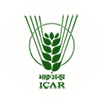Vacation decision making / Alain Decrop, University of Namur, Belgium.
Material type: TextPublisher: Wallingford, Oxfordshire, UK : CABI, 2006Copyright date: 2006Description: 1 online resource (xxiii, 226 pages) : illustrations, chartsContent type:
TextPublisher: Wallingford, Oxfordshire, UK : CABI, 2006Copyright date: 2006Description: 1 online resource (xxiii, 226 pages) : illustrations, chartsContent type: - text
- computer
- online resource
- 910/.68/8 23
- G155.A1 D397 2006eb
The focus of this book is on holiday planning and decision making, which is the cornerstone of tourist behaviour and tourism marketing. The first three chapters deal with the basics, including an overview of decision-making paradigms and variables (chapter 1), a critical review of existing tourist behaviour models (chapter 2) and a description of the methods that may be used for studying holiday decision making (chapter 3). The chapters that follow relate the findings of an in-depth qualitative and interpretative study that followed the decision making process of 25 Belgian households during a whole year. Chapter 4 discusses the context in which holiday decisions are made. In the next two chapters, the focus is on the decision-making process in itself both at the generic and holiday levels (chapter 5) and at the destination level (chapter 6). Post-experience processes are investigated in chapter 7, whereas group processes are the particular focus of chapter 8. Chapter 9 presents the integrative and conclusive part of the book where a new typology of holidaymakers is proposed. The book has a subject index.
Includes bibliographical references (pages 169-187) and index.
Introducing Vacation Decision Making -- Models of Vacation Decision Making -- Methods to Investigate Vacation Decision Making -- The Context of Vacation Decision Making -- Vacation Planning and Decision-making Processes -- Destination Perception, Evaluation and Choice -- Post-experience Processes -- Group Processes in Vacation Decision Making -- A New Typology of Vacationers.
Access limited to subscribing institution.
Also available in print format.
Title from PDF title page (viewed August 14, 2013).


There are no comments on this title.